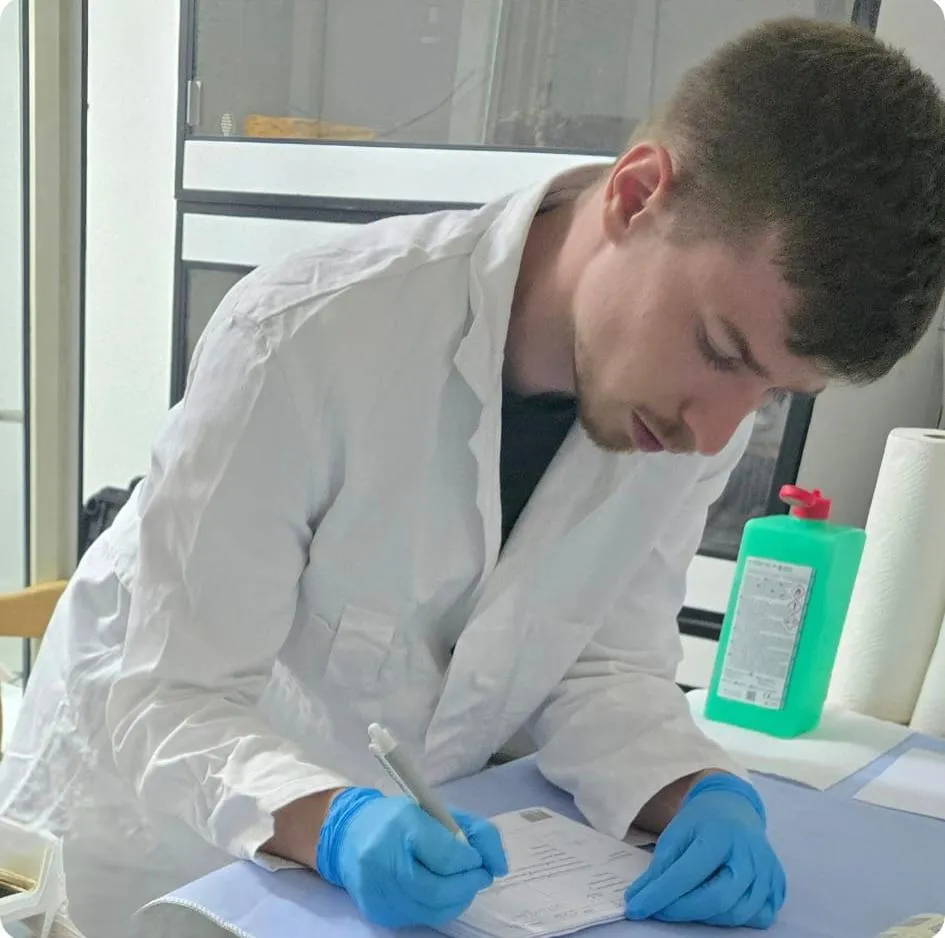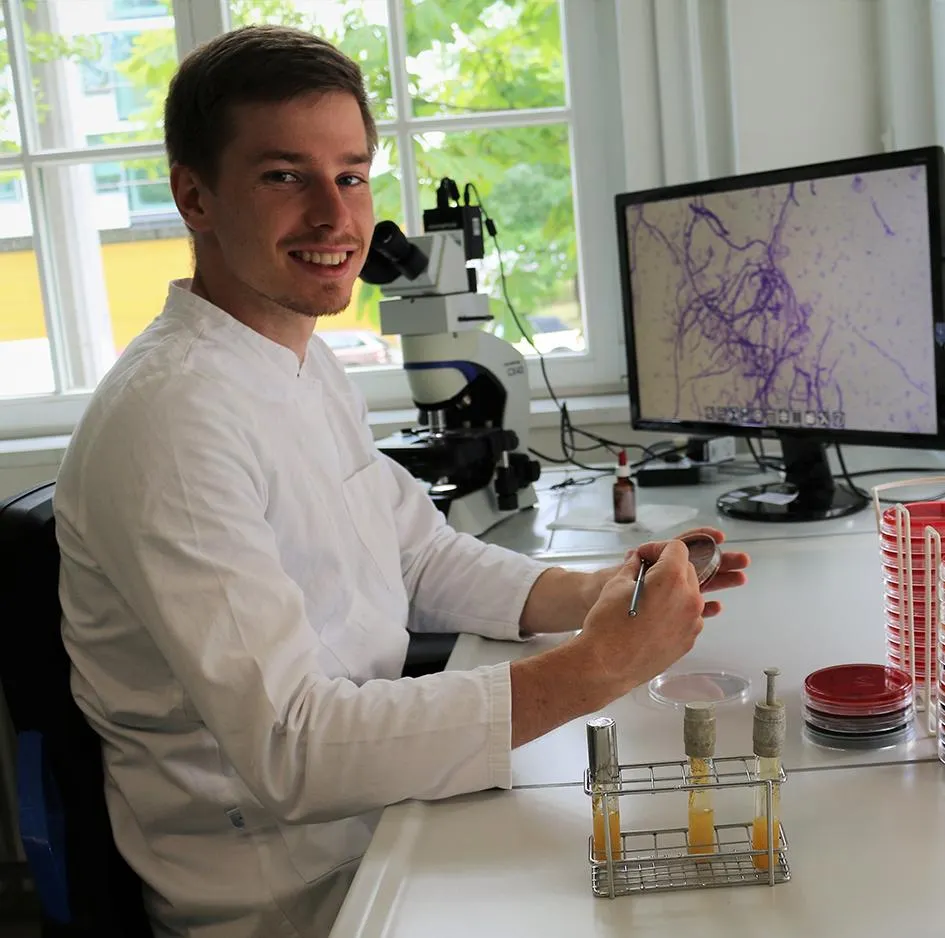Help Us Advance a Promising Study on Serpentovirus (Nido) in Ball Pythons
My name is Robert Mosebach, a veterinarian with a deep passion for reptiles and microbiology.
In my doctoral thesis, I dedicate myself to studying Serpentovirus (also known as Nidovirus), a pathogen responsible for sometimes lethal respiratory infections in snakes.

My work covers several areas of research, including:
Investigating possible vertical transmission
Developing a serum neutralization test for antibody detection
Comparing existing diagnostic methods
Studying blood parameter changes in infected animals
Exploring treatment options and monitoring outcomes through long-term testing
The overarching aim is to improve our understanding of serpentovirus infections in snakes and contribute to strategies for reducing their impact in collections. To accomplish this goal the RWA is helping me with the implementation of my studies, without them I would not even have the chance to start working on them.
The Current Study
In collaboration with breeders, keepers, and the reptile community, we have recently initiated a structured study to evaluate a non-invasive approach to supporting snakes that test positive for serpentovirus.
The study is conducted and maintained at Albert Bitton’s facility, in a dedicated, isolated room specifically designed to maintain controlled environmental conditions and allow accurate monitoring of relevant parameters.
This method is designed to work with the animal’s own physiology and immune system. Early results have been encouraging, but the number of animals studied so far is too small to draw statistically reliable conclusions.
To determine whether this approach is effective, the process needs to be repeated with a larger sample size under controlled conditions.
Animal Welfare Considerations
Animal welfare is central to this work. Every snake involved in the study undergoes:
A veterinary examination before inclusion
Daily monitoring to assess behavior, respiratory function, and neurological signs
This ensures that the study produces meaningful data without compromising animal safety.
Why Further Support Is Needed?
The preliminary findings highlight the potential of this approach but also demonstrate the need for:
Additional animals to increase the sample size
Improved equipment (enclosure systems, observation tools, environmental controls)
Funding for materials, animal care, and testing
Expanding the study will allow us to generate data that can be evaluated and shared within the broader reptile community.
How the Community Can Contribute
This project is designed as a community-supported initiative. Contributions can take several forms:
Supplies: enclosures, monitoring equipment, environmental systems
Financial support: covering research and animal care costs
Outreach: sharing the project with other reptile professionals and enthusiasts
Even small contributions can support continued progress.
The Broader Significance
Serpentovirus is widespread and often underdiagnosed in captive snakes. Collections are frequently affected without the keeper’s knowledge, and outbreaks can lead to significant losses.
By systematically studying possible supportive measures, this project seeks to provide the reptile community with reliable data and practical tools for managing infected collections.
Conclusion
This initiative represents a collaborative step toward improving reptile health and husbandry. With additional resources, we can continue structured research, strengthen diagnostic and treatment options, and share evidence-based findings with the wider community.
For further details Email - [email protected]
The Study Team
Robert Mosebach - Veterinarian.
Veterinarian with a special focus on reptiles and microbiology. He currently works at a leading veterinary diagnostic laboratory and is conducting his thesis on Serpentovirus (Nidovirus) in snakes. Alongside his research and diagnostic work, Robert is a passionate reptile keeper, caring for over 50 geckos spanning five species. His work bridges scientific inquiry with hands-on expertise in reptile care.

Albert Bitton
Reptile breeder, wellness advocate, and founder of the Reptile Wellness Alliance (more info coming soon). With a deep commitment to responsible husbandry and scientific inquiry, Albert is actively collaborating in research on Nidovirus in ball pythons. His work bridges field experience with veterinary partnerships to explore innovative care strategies and promote reptile health across the global keeper community.

